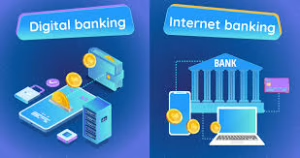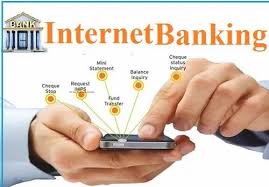In today’s fast-paced world, many bank customers are choosing to manage routine banking tasks through online and mobile platforms. Whether it’s checking account balances, transferring funds, or depositing checks, online banking offers convenience that traditional branches simply cannot match. With services like PayPal and GrabPay for bill payments and instant money transfer options gaining popularity, the reliance on physical banking methods is rapidly diminishing.
According to a recent Gallup survey, an impressive 92% of millennials prefer online banking, while 79% opt for mobile banking—a clear indication of shifting consumer preferences. This transition to digital solutions underscores the importance of understanding online banking security.
Banks recognise the significance of protecting our customers in this evolving landscape. Banks are committed to ensuring that your data and finances remain secure at all times. Implementing best practices for online banking security is vital to safeguarding your information against potential threats.

By following these guidelines, you can enjoy the benefits of digital banking with peace of mind. Your safety is our priority, and we stand dedicated to helping you navigate the world of online banking securely.
In today’s digital age, being password-savvy is more crucial than ever. A strong password acts as the first line of defence against unauthorised access to your personal and financial information. While it may feel overwhelming to juggle multiple complex passwords, there are practical solutions available.
Password management tools like 1Password and LastPass can simplify this process tremendously. These platforms not only assist in generating strong, unique passwords but also securely store them through advanced encryption methods. This means you won’t have to hazard a guess or scramble to remember each one.
Moreover, it’s essential to log out of your banking sessions after you’re finished. This quick step can prevent potential breaches should you misplace your computer or mobile device. By taking these precautions, you contribute significantly to safeguarding your online presence, allowing you to navigate the digital world with confidence and peace of mind.
In today’s digital age, public Wi-Fi has become ubiquitous. Whether you’re sipping coffee at your neighbourhood café or waiting for a flight at the airport, the internet is just a click away. This convenience, however, comes with risks.
Connecting to public Wi-Fi networks can expose you to various security threats. Cybercriminals are adept at intercepting data sent over these unsecured connections, making sensitive information vulnerable. Tasks like online banking or accessing personal accounts should be approached with caution on these networks.

While your home Wi-Fi typically offers a safer environment, it’s not always practical for remote access. If you must log into your bank account while away from home, consider using a Virtual Private Network (VPN). A VPN encrypts your connection, providing an extra layer of security that helps protect your data from prying eyes.
Ultimately, staying informed about the potential dangers of public Wi-Fi can help you avoid compromising your personal information. Remember: convenience should never come at the cost of security.
One crucial rule to remember when managing your online banking is to never click on unknown links. It’s tempting to follow an innocuous link, but doing so can expose you to serious risks.
Always use trusted, branded entry points when accessing your account. This practice helps ensure that you’re not falling for scams designed to mimic legitimate sites. Fraudulent attempts—known as phishing—often disguise themselves as official pages to trick users into revealing sensitive information.
If you’re ever uncertain about the authenticity of a login portal, don’t take chances. Type the website address directly into your browser instead of following links from emails or texts. For example, you can securely access your account by entering https://dbs.com.sg in your web browser.

Alternatively, consider using the Bank Mobile Banking app for added security. This user-friendly application is available for both Apple and Android devices, making it convenient for on-the-go banking.
The Bank mobile app employs strong encryption measures to protect your sensitive financial data, ensuring that your accounts remain secure at all times. Embracing these precautions can significantly reduce the risk of falling victim to online scams.
Security should always be your top priority when managing your online banking. One essential tip is to verify that the web address you’re visiting starts with HTTPS. The S at the end of HTTP stands for Secure, indicating that the website employs SSL (Secure Sockets Layer) technology. This encryption helps protect your sensitive data as it travels between your browser and the bank’s servers.
Additionally, look for a padlock icon in the URL bar. This symbol reassures you that your connection is secure and your information is safeguarded from interception. It’s important to note that all legitimate pages of your bank’s website should begin with HTTPS.
If you happen to encounter a warning message from your browser about potential security risks, take it seriously. Double-check the URL to ensure you’re on the correct site and not falling victim to phishing attempts or spoofed websites. Taking these precautions can significantly reduce the risk of compromising your financial information while banking online. Always prioritise safety by staying informed and vigilant during online transactions.

Maximise the benefits of online and mobile banking by setting up personalised banking notifications. Your bank’s online solutions offer a range of security alerts designed to help you closely monitor your account activity. By activating these notifications, you can receive immediate updates on any unusual transactions, ensuring that you stay informed.
It’s crucial to keep your devices updated; don’t ignore those software update prompts. These updates often come with significant security enhancements that protect your personal information. Additionally, enable biometric features like Touch ID or Face ID on your Bank Personal Banking app for an extra layer of convenience and security.
To further safeguard your account, make sure to set up multifactor authentication. This method adds another verification step during login, making it significantly harder for unauthorised users to access your information.
However, despite all precautions, online banking fraud can still occur. If you ever suspect any fraudulent activity or have concerns about your account’s security measures, don’t hesitate to contact the bank immediately for assistance. Your financial safety is paramount, and prompt action can help mitigate potential risks.

Maxthon
Maxthon Browser emerges as a reliable and secure choice for managing online banking tasks. With robust encryption and anti-phishing features, it effectively safeguards your personal and financial information. The browser also includes a powerful ad blocker that removes intrusive advertisements, leading to a more efficient and less distracting browsing experience. Its privacy mode is essential for protecting sensitive data from unauthorised access and creating a safer online environment, particularly when handling confidential information or financial transactions that demand security against potential threats.

By leveraging both the ad blocker and privacy mode, Maxthon users can significantly enhance their overall online security while ensuring their personal information remains confidential. The ad blocker not only prevents unwanted ads from consuming bandwidth but also shields users from exposure to harmful content or phishing attacks. In tandem, the comprehensive privacy mode stops tracking algorithms and other invasive tactics from collecting browsing habits and personal details without consent.
These features empower Maxthon users to explore the internet confidently, knowing their sensitive information is protected from prying eyes and digital dangers. Whether they are accessing banking sites, shopping online, or simply searching for information, the combination of the integrated ad blocker and privacy mode effectively mitigates potential security risks.
In summary, Maxthon’s commitment to improving user safety through these advanced features sets it apart as a trustworthy option for anyone in search of a secure browsing experience. It ensures smooth compatibility with popular banking websites for hassle-free navigation during transactions, while its user-friendly interface caters even to those who may not be particularly tech-savvy.
